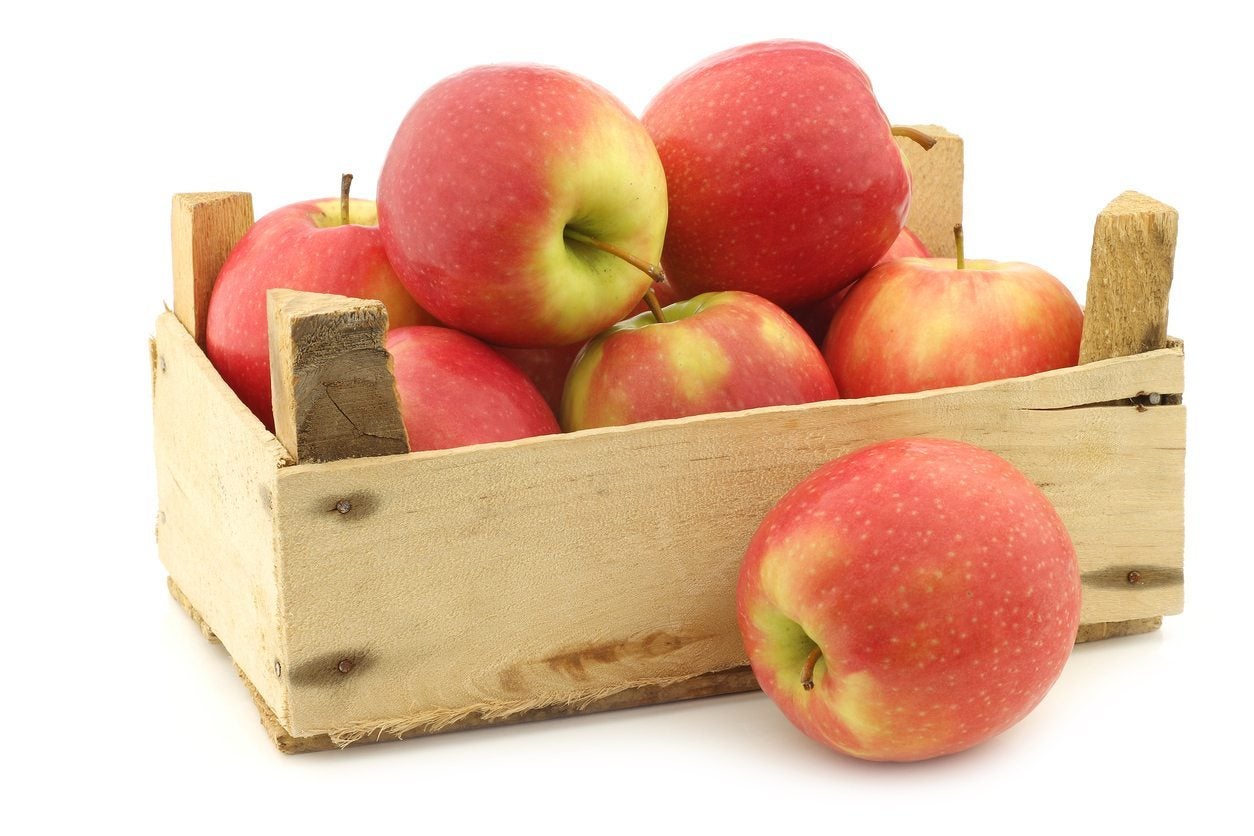
If you have your own apple tree, then you know you will harvest far more than can be eaten in one sitting. Sure, you may have passed off a bunch on family and friends, but chances are good that you still have some left. So how long do apples last? What is the best way to preserve fresh apples? Read on to find out how to store apples properly for the longest shelf life.
How Long Do Apples Last?
The length of time apples can be stored depends on a number of factors. First, it depends on when you picked them. If you have picked them when overripe, they tend to break down rapidly, reducing the amount of apple storage time. In order to determine when to harvest the apples, you need to look at their ground color. Ground color is the color of the apple’s skin, not including the portions that have become red. With red apples, look at the part of the apple facing the interior of the tree. Red apples will be ready to harvest when the ground color changes from leaf green to yellowish green or creamy. Yellow cultivars will be ready to harvest when the ground color turns golden. Apples with a yellowish green ground color are suited as storing apples. Keep in mind that some apples store better than others. For instance, Honey Crisp and Gala lose fruit quality within a couple of weeks from harvest. Stayman and Arkansas Black heirloom apples will last up to five months if stored properly. Fuji and Pink Lady store very well and may be perfectly good into spring. A general rule of thumb is that late maturing varieties store the best. Apples that will be eaten right away may be ripened on the tree, but apples that are going into apple storage are picked mature, but hard, with a mature skin color yet hard flesh. So you harvest storing apples earlier than those you want to eat fresh immediately. When stored properly, some apples will last for up to six months. So how do you store apples properly?
How to Preserve Fresh Apples
As mentioned, for storage apples, pick when the apple’s skin color is mature but the fruit is still firm. Set aside any apples that have bruises, insect or disease damage, cracks, splits, or mechanical injury, as they will not store for any length of time. Use these instead to make pies or applesauce. The key to storing apples is to store them in a cool area with relatively high humidity. If you store them in the refrigerator, the temperature should be around 32 degrees F. (0 C.). The relative humidity should be about 90 to 95% to keep the fruit from shriveling. Small quantities of apples can be stored in a plastic bag with holes in the refrigerator. Larger yields should be stored in a cellar or basement with high humidity. Store the apples in boxes lined with plastic or foil to help retain moisture. Check in on the stored apples every so often since the saying ‘one bad apple spoils the barrel’ is definitely true. Also, store apples away from other produce since apples give off ethylene gas that can hasten the ripening of other produce.
Sign up for the Gardening Know How newsletter today and receive a free copy of our e-book "How to Grow Delicious Tomatoes".

Amy Grant has been gardening for 30 years and writing for 15. A professional chef and caterer, Amy's area of expertise is culinary gardening.
